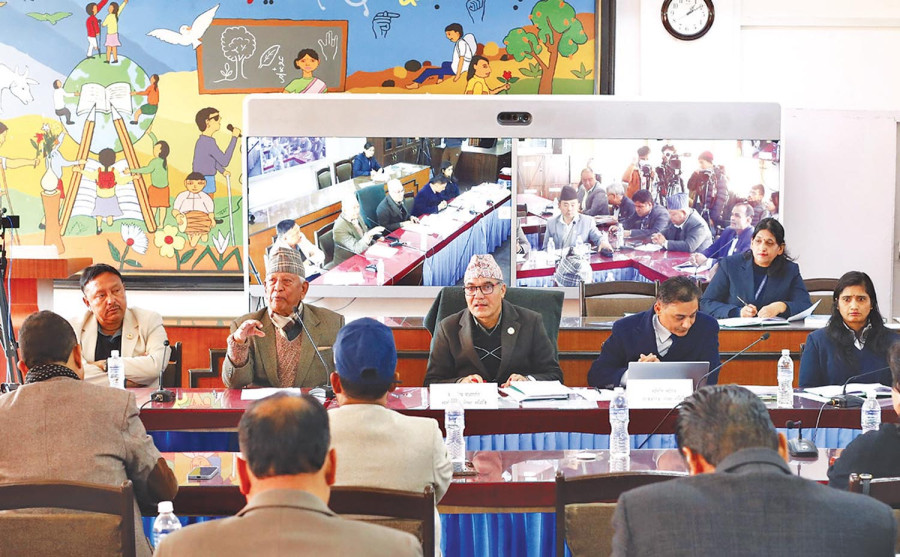National
House panel smells a rat in Teramocs deal, orders CIAA probe
There are concerns the telecom service monitoring technology might give the government access to people’s confidential personal data.
Post Report
The Public Accounts Committee under the House of Representatives on Wednesday asked the Commission for Investigation of Abuse of Authority to investigate the procurement of the Telecommunications Traffic Monitoring and Fraud Control System (Teramocs) by the Nepal Telecommunications Authority.
Pointing out the possible irregularities during the procurement of the system, the House committee asked the anti-graft body to investigate the deal subtly and take strong legal action if any irregularities were found. The committee has also told the anti-graft body to submit the progress report on its investigation within 30 days to the committee.
Teramocs is a technology conceptualised for the lawful interception and domestic voice/data traffic monitoring with fraud detection and control over the network of telecom service operators, who are providing telecom and internet services to the public.
The NTA has said that technology was bought to monitor whether the service providers are charging customers fees as per the rule and delivering quality service to customers.
However, there are concerns that the technology might enable the NTA to collect confidential personal information including call details and SMS of citizens and the telecommunication operators have been reluctant to make their system compatible with Teramocs, pointing out violation of privacy of the people.
Besides privacy concerns, the PAC has suspected irregularities in the procurement of the system, which is reported to cost around Rs3 billion, according to the NTA. “Based on the study of the available documents on procurement, there is no reason not to suspect irregularities,” the decision of the PAC reads.
The PAC has also ordered the government to halt the procurement process for the time being and not to make any payment stating that the procurement process has not followed due legal process.
According to the PAC, the government’s budget for the current fiscal year 2023-24 itself has talked about using this technology following the clarity on the policy and legal matters.
“That’s why the system cannot be implemented without having a law in place. The Supreme Court has also ordered to prepare the necessary law to implement the system,” the PAC said.
The parliamentary body questioned whether obtaining personal call details and messages of citizens in the absence of law would amount to the violation of an individual’s privacy.
Likewise, there has not been a proper analysis of the impact of the provision that allows the supplier of the system to access data related to the anti-fraud system, the PAC said.
The House panel has also pointed out that the procurement process was initiated without adopting e-bidding, which was mandatory.
The agreement signed to make payment in local currency for tasks other than hardware and frequent changes in criteria of procurement are other concerns, according to the PAC.




 9.83°C Kathmandu
9.83°C Kathmandu













